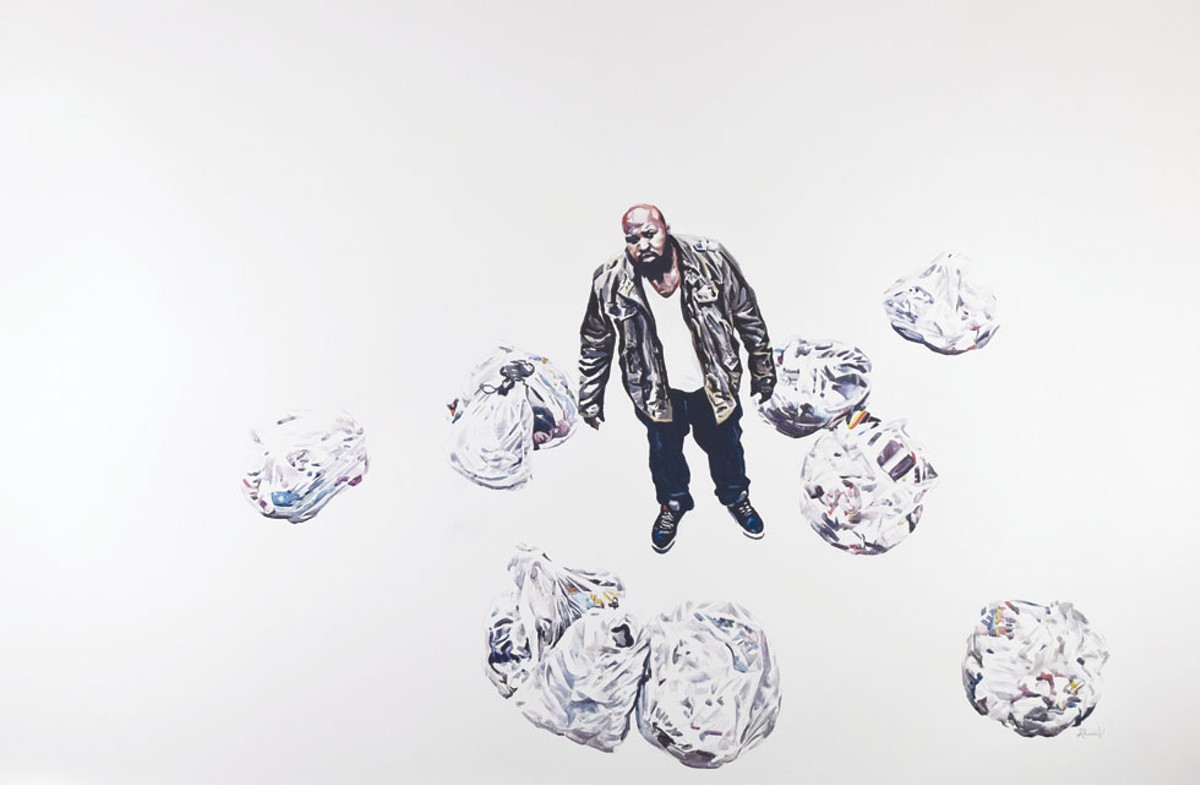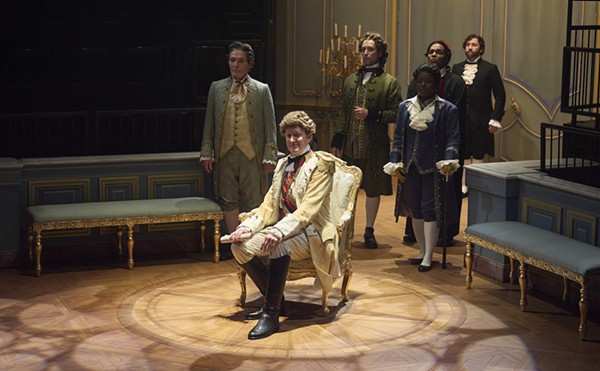The handbag is its own metaphor. It has long been recognized as the accessory within which, traditionally, women have held their lives. This article, made from so many different materials, is indeed cross-cultural. It is a symbol of status and necessity at once.
Some bags are highly organized, while others act like the abyss, a black hole that sucks change in between the lining and the bag, impossible to figure out and even more so to reach. There is the old bag, the new bag, the clutch, the tote, the messenger, the bucket, the hobo and the backpack. Each relays a tale of the person who carries that baggage. The raw nakedness one feels when unable to locate her purse or, worse, if it has been stolen. "My whole life is in there!" may be screamed aloud, but more often merely whispered in our heads — because we don't want everyone to know that our whole life is held in our purses.
God forbid one's handbag falls and spills its contents for the world to see. It's worse yet if something precious breaks in the spill.
Darius Steward's latest exhibition, Baggage Claim, now on view at Tregoning & Company, is part homage to his late mother, and most dedicated supporter, Rhonda V. Steward, as well as his own coming to terms with inherited and life-lived baggage.
"Coming out into this exhibition are issues I had to deal with when my mom passed. All that weight to clear my closet, so to speak. Getting some things out and for first time I'm really portraying women. It is remarkable the type of weight people have to carry with them. I wanted to push ahead the idea if I could physically show people my baggage, what would that look like?"
In this solo exhibition, Steward has included past works, not because they hadn't been shown before, but because they are touchstone pieces: pieces that were included in the final art show that his mother was able to attend. "If You Too Cool You Lose" and "Looking In, Only Looking IN" are portraits of his son, who Ms. Rhonda loved so very much. "It was the last work she had seen. Actually, this was her favorite piece that she had seen," Steward directs us to the print depicting his son looking in through a window, wearing a T-shirt that says POLO. It is a moving etched print, rife with emotion. "She was watching my son, all the way up until we got the new baby home. She was sick the whole time, but she didn't want to tell me she was sick while she was watching my child, while I was having another child. She spent the last moments with my son so, you know, that piece is very important. It is important that I put them up."
To carry baggage, as part of life's course, is to keep moving. In this exhibition we find a small painting of a woman walking. As she strides forward, she is unleashing her baggage behind her. Despite its diminutive size, there is a massive sense of airy liberation. We see those same handbags in the much larger and more boldly painted "Grin and Bear It." Here a woman is holding four bags on each forearm. The weight she bears causes her to hunch forward in an effort to balance her day-to-day.
One of the most visually and emotionally stunning pieces in Baggage Claim, however, is titled "Destination." A reddish-orange handbag, solo and love-worn, slightly open with its shadow to the left as if the sun is setting upon it, almost brought tears to this writer's eyes. "This is a very important bag to the family," says Steward. It belonged to his wife's sister who passed away. He goes on to reveal that, "this was her every-day bag."
To say that Steward's work is like looking into a dream is an understatement. His adroit use of negative space is a hallmark of his gorgeous paintings, drawings and prints. In "My Inheritance," we see the artist standing alone, looking up, surrounded by bags of items. The bags are nearly the same color as the stark white background and seem to fade into, or are pushing out from, that background. These bags contain all of his mother's things. He has, as the artist explains, essentially inherited her baggage and is coming to terms with what to do with all of this information. "When a loved one dies, you gotta clean out all they stuff, this is some of her bags of stuff ... this is what I end up being with: memories and plastic bags filled with stuff. [It's] what I feel like I have to carry around. and even though I am not carrying them physically, I am thinking about them constantly."











